We Can Live Without Leagues
If bad times bring out the best in ordinary people, sports labor brings out the worst in the privileged lives of owners and players.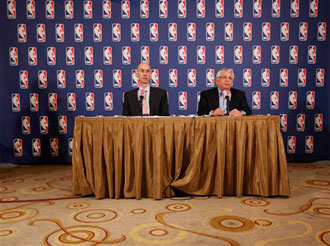
Now is the summer of our discontent?
Your ordinary June is slow enough when the NBA Finals end and you notice a silence has fallen over the land.
From September, when the NFL starts, to April, when the Final Four ends, we never have fewer than four professional leagues going, counting those purporting to be amateurs like the NCAA.
Not that we can’t handle it with umpteen cable channels, streaming video on our cells, et al.
These days, hip fans tune out the season as a necessary evil that provides the needed revenue and salary, before the post-season, the only time anything counts.
(See: LeBron James, now deemed the king of chokers, after running No. 1-1-2 in the last three MVP races.)
Unfortunately, from now until the NFL openers, baseball is the only game in town, in its anticlimactic phase between Opening Day and the Midsummer Classic (or, depending on your level of interest, the Fall Classic).
(No, I’m not counting women’s World Cup soccer even if ESPN, which needs the programming, does. Last Sunday’s stirring U.S. victory got a 2.6 overnight, twice as good as the tournament’s best to that point, but lower than the NHL Finals averaged for seven games.)
This particular June, of course, is an even greater challenge.
Baseball is off to a downbeat start, hampered by bad weather — gee, who imagined that would happen if they kept starting earlier? — and more palace intrigue as Commissioner Bud Selig’s former protégé, deadbeat Dodger owner Frank McCourt, fights him for control of the team.
Golf has no Tiger Woods to dump on.
Ohio State, and by inference college football, is in mid-scandal after already weathering the scandal about Auburn University’s Heisman Trophy winner Cam Newton, whose father shopped Cam’s services, looking for something in the $175,000 range for what would prove to be one year.
Roger Clemens is back on trial. (Again, what did he do? Oh right, it was just steroids.)
And, of course, lockouts in the NFL and NBA!
Except for the agony of having to hear about billionaires whose teams are hobbies and the millionaires they oppress (and, worse, having to cover the NBA on my day job), I would say “two down, two to go!”
If only they would really shut down, and take baseball, the NHL and all other leagues that are so sorely tested with them.
We can live without them. No, really.
I’m as big a consumer as they have. All I do at home is lie on my couch and watch sports and movies.
When there are no sports, I just watch more movies!
How hard was that?
On the other hand, how long can anyone endure this bullshit?
If bad times bring out the best in ordinary people, sports labor — now there’s a contradiction in terms — brings out the worst in the privileged lives of owners and players.
If owners are imperious, players entitled and the press loony in normal times, they really make horses’ asses of themselves in labor negotiations.
It’ll be a long time before anyone tops Carolina Panthers owner Jerry Richardson in an owner-player meeting, sneering at Peyton Manning:
“Do I have to show you how to read a revenue statement, son?”
And, “What do you know about player safety?”
Happily, fellow owners got Richardson out of there before he began reminiscing about plantation life.
Actually, NFL players are the closest thing professional sports has to an oppressed class, one with shorter careers and far more bodily damage.
Years ago, I covered the Raiders, whose D-line coach was Earl Leggett, the Bear stalwart in the ’60s.
He looked 100 pounds over his listed playing weight, 265. He walked down stairs sideways with knees that no longer let him do it front-ways.
At that, Earl reached 75 before he passed away in 2008. A 1994 study by the National Institute of Occupational Safety and Health found NFL linemen had an average life expectancy of only 52.
Yes, there are real issues in sports.
No, they don’t come up a lot in labor talks, which are more about money.
We just saw NFL Commissioner Roger Goodell fine and suspend every pass rusher who looked crossways at a quarterback.
Having ensured his players’ safety, Goodell turned around and tried to add two games to their schedule.
Not that modern players aren’t treated with more respect than their counterparts were in 1963 when Green Bay’s All-Pro center, Jim Ringo, hired an agent, who went in to negotiate with the sainted Vince Lombardi … who told him he had just traded his client to Philadelphia, where Ringo would make three more Pro Bowls.
Aside from that, the ’60 were, as we said then, groovy.
Today’s Internet-driven, sensation-seeking press is a commissioner’s dream, made for labor posturing, taking any dire hint as an opportunity to assume the worst, leading to an unprecedented buildup for the summer: two years of doomsday scenarios predicting that the NFL and NBA seasons were endangered.
In real life, the NFL owners climbed off their high horse the moment the union decertified, dropping their 18-game season, and are now close to a face-saving device, er, agreement, in time to open training camps on schedule.
The NBA owners actually have problems, as opposed to the Vanity Lockout by NFL owners, who, according to Forbes, averaged a $33 million profit last season.
It’s just that the NBA issues aren’t as dire as Commissioner David Stern says they are.
NBA owners operate close to the blade, in no small part because the rich teams (Lakers, Knicks, Bulls and, yes, Clippers) are obliged to put so little into the vestigial revenue-sharing plan ($49 million anually compared with baseball’s $450 million).
With small-market owners militant to the point of rising up against their commissioner, Stern may feel obliged to miss November to show his guys he went as far as he could.
For what it’s worth, my bet is that’s all the NBA will miss.Despite Stern’s claims of $340 million in annual losses, the NBA never stopped making money on an operating basis (see: Nate Silver debunking Stern on his New York Times blog), with the league’s fortunes on the rise and huge new regional TV deals coming on line (see: the Lakers’ $3 billion, 20-year deal with Time-Warner).
In the meantime, as the leagues work out their issues, why are we supposed to care again?
It’s their business. Let them worry about it.
They were richer than we were when this started and they’ll be richer than we are when it’s over.
Both sides play to us as if our opinion counts, but it doesn’t.
It’s not a debate or a plebiscite. It’s collective bargaining, which means the parties settle it all by themselves.
Public opinion means nothing, which is good for players, who were living out fans’ dreams before joining the labor movement.
Fans were down on baseball players for decades, even as owners kept trying to break their union … and wound up turning it into a superb fighting force that now has its boot on the owners’ necks.
If the NBA cancels games, or its season, life won’t come to an end. The NBA won’t even come to an end.
Forget that stuff about “the fans won’t be back.”
Fans have been abandoned often enough to amass an admirable track record of coming back, even if not all of them on day one.
Baseball blew off a World Series in 1994, and was stronger than ever within years, even if people were shocked to learn what drugs made it so strong.
(Baseball has had labor peace since 1994 because the owners are now scared to propose anything the union doesn’t like … like testing for steroids, until it was too late.)
NHL Commissioner Gary Bettman and his owners shut down their 2004-05 season for the best of reasons: They couldn’t go on the way they were.
They’re back on better footing, having found their niche audience waiting, just where they left it.
So it’s really the summer of their discontent.
We have lives, thank you, or at least TiVo.
Mark Heisler is a superstar NBA columnist for the Los Angeles Times who, from time to time, shares his wisdom and gets deep with Truthdig readers looking to dig into the substance of sports.
Your support matters…Independent journalism is under threat and overshadowed by heavily funded mainstream media.
You can help level the playing field. Become a member.
Your tax-deductible contribution keeps us digging beneath the headlines to give you thought-provoking, investigative reporting and analysis that unearths what's really happening- without compromise.
Give today to support our courageous, independent journalists.
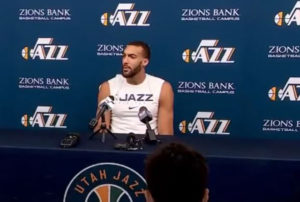
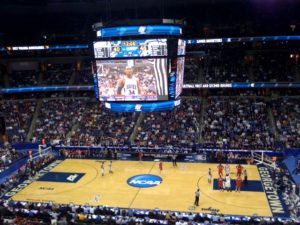
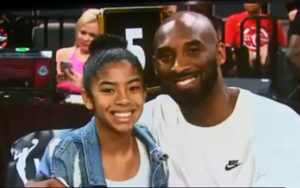
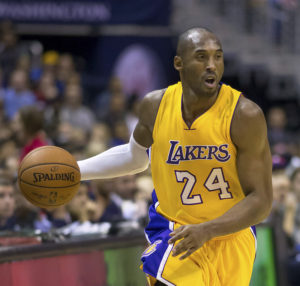
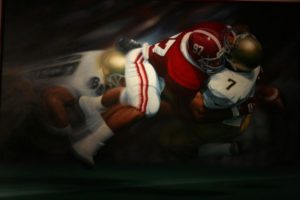
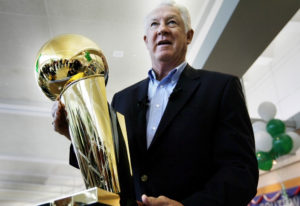
You need to be a supporter to comment.
There are currently no responses to this article.
Be the first to respond.